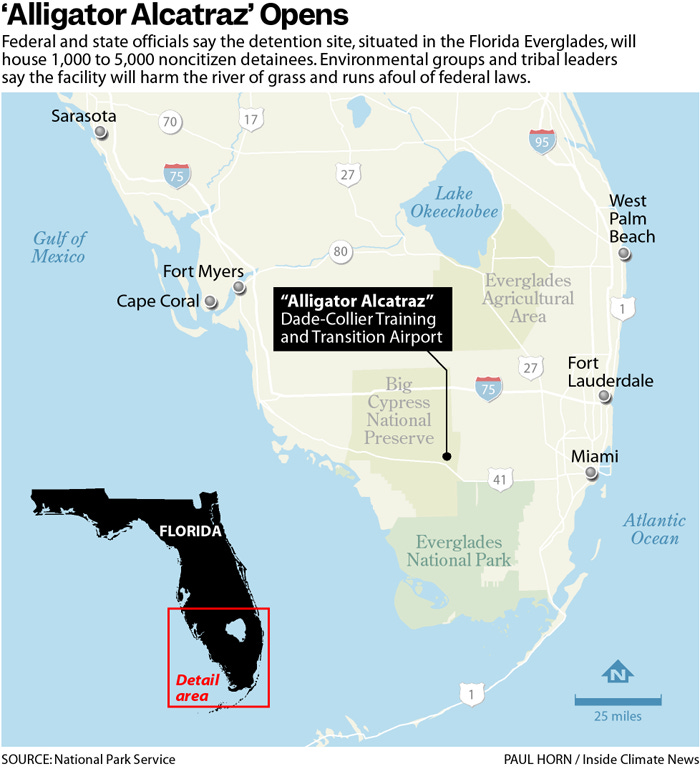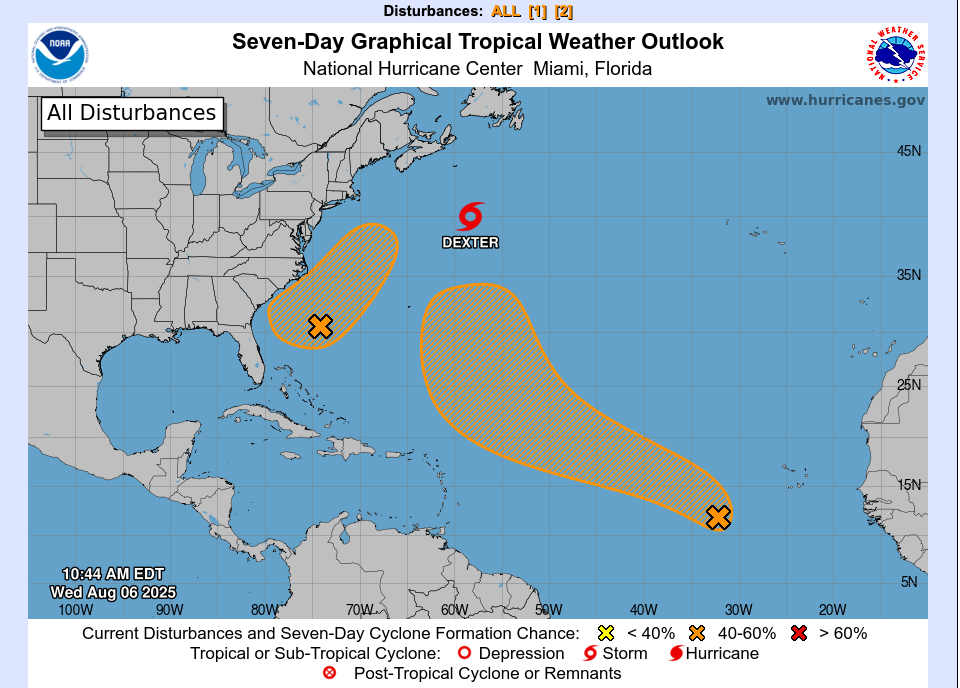Alligator Alcatraz by any name spells controversy
The prison camp in the Florida Everglades is being challenged in federal court today. Will it be shut down?
Florida Gov. Ron DeSantis dubbed it “Alligator Alcatraz,” but critics—and they are legion—have begun calling it Alligator Auschwitz.
The reference to Nazi-era concentration camps may be a stretch, but the tactics of the ICE agents who have been rounding up immigrants certainly invites comparisons to the Gestapo.
The makeshift prison in the Everglades is also serving as a model for similar prisons around the country: Next up, Speedway Slammer near Indianapolis, Homeland Security Secretary Kristi Noem has gleefully announced.
But the speed at which the prison camp in Florida’s famous swamp was thrown together has raised numerous questions, not the least of which is whether due process was followed in regards to the impact on the Everglades’ environment.
And now, Alligator Alcatraz faces the possibility it will be shut down.
A federal judge in Miami today is holding an evidentiary hearing whether to block operations there because construction of the prison bypassed federal environmental impact studies.
Advocates for immigrants detained at the facility argue they are living in inhumane conditions including flooded facilities, spoiled food, and sweltering heat -- and that they have limited access to their attorneys and are effectively housed in a jurisdictional "black hole," according to ABC News.
In a separate case, a federal judge has ordered federal and state officials show which government or contractor is authorized to detain people at the sprawling complex. Immigrant advocates argue that both state and federal officials are dodging responsibility to avoid any kind of oversight.
ABC News reports that while today’s federal court hearing “ is limited to environmental issues -- including impacts on the nearby Big Cypress National Preserve -- the testimony is expected to shine a light on the operations of the facility and could result in a federal judge ordering the facility to be shut down until the required environmental impact studies are conducted.”
This would not make President Donald Trump happy. He’s boasted, "They have a lot of bodyguards and a lot of cops that are in the form of alligators. You don't have to pay them so much."
Alligator Alcatraz is located in Collier County on the site of the Dade-Collier Training and Transition Airport, which at one time was considered as a site for a new regional airport until environmentalists were able to block it.
Inside the Big Cypress National Preserve near its eastern border, the area is home to threatened species including the Florida panther, Florida bonneted bat, the Everglade snail kite, and wood storks.
It’s other neighbor is the Miccosukee Indian Tribe, which joined the lawsuit.
Watching the Tropics
The National Hurricane Center’s latest updates for the Atlantic and Gulf of Mexico show that while the weather is heating up, the current storms and disturbances do not appear to be a threat for now.
J.C. Bruce is the editor of Tropic Press, an award winning journalist and columnist, and author. He holds dual citizenship in the United States of America and his native Florida.
Thanks to our sponsor
Today’s report is brought to you by Tropic Press Books, home of The Strange Files. Interested in sponsoring these reports? Contact: Advertising@Tropic.Press







Super, thanks. I'm part of the media covering this, so, that's important to note given the environmental factors involved.
This says the detention center is "Bordering the Big Cypress National Preserve, ..." No, it is wholly INSIDE the BCYNP. Total. No near, no bordering, no adjacent. It is INSIDE the preserve.